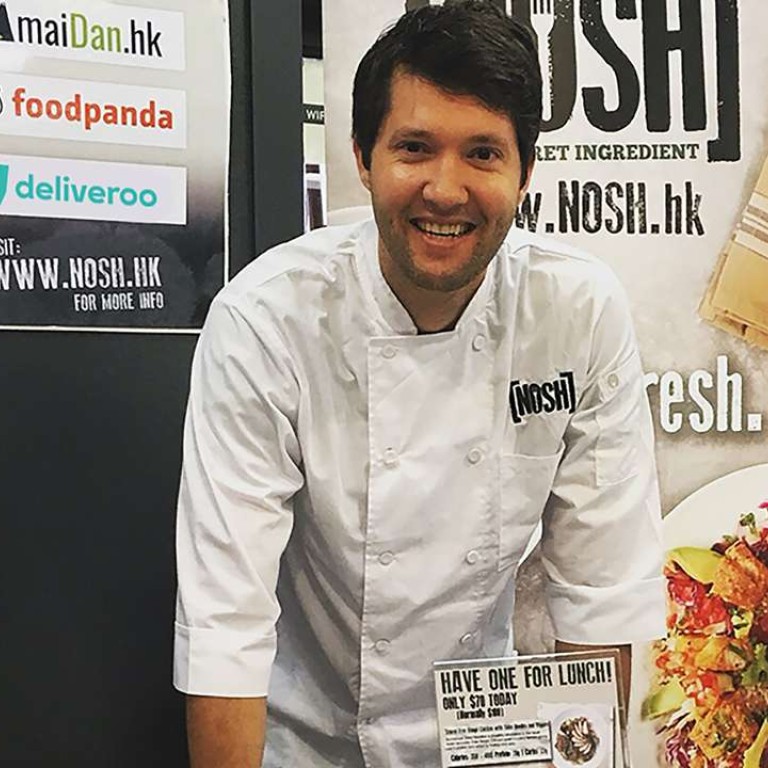
Nosh brings meal of your choice to doorsteps
Entrepreneur Maximilian Von Poelnitz uses central kitchen to cook food and make timely deliveries
Real estate manager-turned-food entrepreneur Maximilian Von Poelnitz regrets picking Hong Kong as the location for his first start-up delivering meal kits containing portioned ingredients for cooking at home as the concept struggled to take off, despite similar businesses ‘exploding’ overseas.
Undeterred, he is trying again by delivering meals cooked in a central kitchen and dispatched to Hong Kong’s health conscious, time poor diners through his latest start-up, Nosh.
“Secret Ingredient I launched on a personal problem…. I really wanted this and got lucky that people wanted this. [I did] zero market research,” Von Poelnitz said.
“This time around, I actually tried to see what is in the market, what are the pain points... can I fix this for you and create value.”
Von Poelnitz’s first food company, Secret Ingredient, is still in operation, but he said the cost of quality ingredients meant the kits had been adopted for special occasions and not daily use as has been seen in the United States or Norway.
He founded Nosh in July last year as he views the model of using a central kitchen to prepare meals over using existing restaurant kitchens paired with external delivery companies as the next wave for food ordering in the city.
Nosh has partnered with retail shops, which store the meals in refrigerators until orders come in. They then heat the food ready for collection by delivery companies. Food can also be delivered cold.
Nosh sells more than 2,000 meals a week and has seen month-on-month growth of 17 per cent, Von Poelnitz said.
But Von Poelnitz is not alone is the use of a factory kitchen, as other start-ups are also building on similar ideas in markets such as the United States.
However, it is not without complications as San Francisco start-up Munchery has shown. Munchery has reportedly wasted 16 per cent of its cooked products, costing as much as US$1.9 million over almost two years, according to Bloomberg.
Nosh is able to limit food waste to around 7 per cent, Von Poelnitz said, by making conservative demand forecasts and offering only nine lunch and dinner options.
Food delivery start-up Deliveroo has introduced kitchens in shipping containers placed in car parks in the United Kingdom to help restaurants cater to delivery demand and expansion of service areas, mirroring the idea of a central kitchen.
Brian Lo, general manager for Deliveroo in Hong Kong said the company is considering launching RooBoxes in the city, but the lack of available space would have to be ‘worked through’.
“We are not committing to a strict timeline in Hong Kong, per se, but I can tell you that is something we are actively considering,” Lo said. “Our ultimate goal is to be able to bring the best selection to food regardless of which neighbourhood [our customers] live in and I think this is a solution that works well.”
In September, Nosh received investment from Alibaba Group’s Hong Kong Entrepreneurs Fund. Alibaba Group is the owner of the South China Morning Post.
The start-up is set to release a chatbot this month for Facebook messenger to let customers order more easily.

